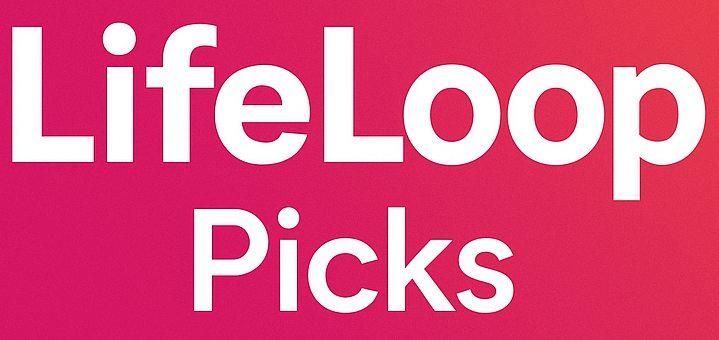Understanding the Rise of High Blood Pressure During Pregnancy
Introduction
Pregnancy is an exciting time, but it also comes with health challenges. One serious concern that is increasingly on the rise is high blood pressure during pregnancy, also known as hypertensive disorders of pregnancy (HDP). Conditions like preeclampsia and gestational hypertension are becoming more prevalent, raising alarm for expectant mothers and healthcare providers alike. In this blog, we’ll explore what’s causing this rise, the risks involved, and ways to prevent complications.
1. What is High Blood Pressure During Pregnancy?
High blood pressure during pregnancy occurs when the force of the blood against artery walls is too high. There are two common types:
- Gestational Hypertension: This develops after 20 weeks of pregnancy and usually goes away after delivery. It can lead to preeclampsia if left untreated.
- Preeclampsia: A more severe condition, characterized by high blood pressure and damage to other organs, often the liver or kidneys. It poses serious risks to both mother and baby if not managed properly.
2. Why is High Blood Pressure on the Rise?
The rise in cases of high blood pressure during pregnancy can be attributed to several factors, including:
- Maternal Age: More women are choosing to have children later in life, and advanced maternal age is a known risk factor for high blood pressure.
- Obesity: With increasing rates of obesity, there’s a higher risk of developing conditions like gestational hypertension or preeclampsia.
- Pre-existing Conditions: Diabetes, kidney disease, and autoimmune disorders can contribute to high blood pressure during pregnancy.
- Lifestyle Factors: Sedentary lifestyles and poor nutrition also play a role in this growing trend.
3. What Are the Risks of High Blood Pressure During Pregnancy?
High blood pressure during pregnancy doesn’t just affect the mother—it can have serious consequences for the baby too. Here are some of the major risks:
- For the Mother:
- Risk of stroke
- Kidney and liver damage
- Placental abruption (the placenta separating from the uterine wall)
- For the Baby:
- Preterm birth
- Low birth weight
- Increased risk of stillbirth
When left unmanaged, high blood pressure can turn into eclampsia, a life-threatening condition that causes seizures and other critical complications.
4. Prevention and Management of High Blood Pressure
Preventing and managing high blood pressure in pregnancy requires proactive healthcare and lifestyle adjustments. Here are some effective strategies:
Healthy Diet
Eating a balanced diet rich in fruits, vegetables, lean proteins, and whole grains can help maintain normal blood pressure. Limiting salt intake is also important, as high sodium levels can raise blood pressure.
Regular Exercise
Staying active with light exercises like walking, yoga, or swimming helps regulate blood pressure and promotes overall health. Always consult your doctor before starting an exercise routine during pregnancy.
Routine Check-Ups
Regular prenatal check-ups are critical for monitoring blood pressure. Early detection of hypertension can prevent complications from worsening. Women with a history of high blood pressure should see their healthcare provider more frequently.
Medications
In some cases, medication may be necessary to control blood pressure. Always discuss options with your doctor, as some medications may not be safe during pregnancy.
5. The Role of Healthcare Providers
Healthcare providers play a vital role in reducing the risk of hypertension-related complications. Screening for blood pressure issues during routine prenatal visits is essential. Many doctors also advise regular urine tests to monitor for protein levels, a key indicator of preeclampsia.
With proper prenatal care, early diagnosis, and targeted treatment, the risks of high blood pressure during pregnancy can be significantly reduced. If a healthcare provider detects high blood pressure early, they can help manage it with lifestyle adjustments or medications.
6. Real-Life Stories of Preeclampsia and Hypertension
Real stories highlight the importance of early detection and the dangers of high blood pressure. Many women who have experienced gestational hypertension or preeclampsia can attest to the anxiety and risks involved. For example, Sarah, a mother of two, developed preeclampsia during her second pregnancy. Thanks to regular monitoring and swift medical intervention, her baby was delivered safely, though prematurely.
These personal stories remind us that while high blood pressure can be serious, with vigilance and proper care, both mother and baby can thrive.
7. Future Outlook: Addressing the Rise in High Blood Pressure
As more research is conducted, the hope is that better preventive measures will become available. Healthcare professionals are looking into improving early detection, while public health campaigns aim to raise awareness about the importance of managing weight, diet, and overall health before and during pregnancy.
Further technological advances may also aid in better at-home monitoring of blood pressure, allowing for more proactive interventions. With increased awareness and access to better healthcare resources, the number of severe cases may decline.
Conclusion
High blood pressure during pregnancy is a serious condition that is becoming more common. However, with the right lifestyle adjustments, early detection, and medical care, the risks can be managed effectively. By maintaining a healthy diet, exercising, attending regular check-ups, and working closely with healthcare providers, expectant mothers can navigate this challenge and ensure a safer, healthier pregnancy.
Call to Action
If you’re pregnant or planning to become pregnant, talk to your doctor about the risks of high blood pressure and what steps you can take to stay healthy. Regular monitoring and early intervention are key to a safe pregnancy journey.

